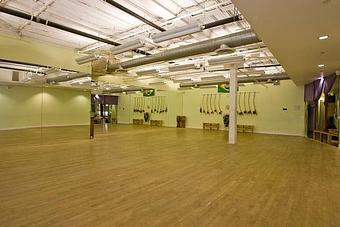Sports & Recreational Services:
 Ahn's Tae Kwon Do Center Martial Arts & Self Defense Schools in Los Angeles, CA
Ahn's Tae Kwon Do Center Martial Arts & Self Defense Schools in Los Angeles, CA 12234 W Pico Blvd
 King's ATA Martial Arts Martial Arts & Self Defense Schools in Santa Monica, CA
King's ATA Martial Arts Martial Arts & Self Defense Schools in Santa Monica, CA 2110 Wilshire Blvd
 Town and Country Mobile Pet and Mobile Pet Grooming & Boarding Services in Santa Monica, CA
Town and Country Mobile Pet and Mobile Pet Grooming & Boarding Services in Santa Monica, CA 3131 Santa Monica Blvd
 Meridian's Bodies in Motion Exercise Equipment in Los Angeles, CA
Meridian's Bodies in Motion Exercise Equipment in Los Angeles, CA 12100 W Olympic Blvd Ste 100
 Dawn Barnes Karate Kids Martial Arts & Self Defense Schools in Santa Monica, CA
Dawn Barnes Karate Kids Martial Arts & Self Defense Schools in Santa Monica, CA 3015 Wilshire Blvd
 Dynamix Martial Arts Martial Arts & Self Defense Schools in Santa Monica, CA
Dynamix Martial Arts Martial Arts & Self Defense Schools in Santa Monica, CA 1207 7Th St
Capoeira Besouro Service List
Photos:


Classes
Monday
Nia w/ Susanne Conrad
8:30-9:30am
Hip Hop w/ Lisa Kellogg
11:00-12:00pm
Toddler Capoeira (ages 3-5) w/ Mestre Batata
3:15-4:00pm
Kids Capoeira (ages 6+) w/ Mestre Batata
4:00-5:00pm
Kids Hip-Hop w/ Lisa Kellogg
5:00-6:00pm
Hip-Hop (All Levels) w/ Lisa Kellogg
6:00-7:00pm
Int/Adv. Capoeira w/ Mestre Batata
7:00-8:15pm
Beginner Capoeira w/ Mestre Batata
8:15-9:15pm
Tuesday
All Levels Capoeira w/ Mestre Batata
8:30-9:30am
Nia w/ Susanne Conrad
9:30-10:30am
Jazz Beginner/Intermediate w/ Jill Strauss
10:45-12:15pm
Zumba w/ Rita Ashton
2:30-3:30pm
Kids & Adults Karate w/ William Candelario
4:30-5:30pm
Seibukan Jujutsu w/ William Candelario
5:30-6:30pm
Hip-Hop (All Levels) w/ Lisa Kellogg
6:30-7:30pm
Hip-Hop (Intro Level) w/ Lisa Kellogg
7:30-8:30pm
All Levels Capoeira w/ Mestre Batata
8:30-9:30pm
Wednesday
Hip Hop w/ Lisa Kellogg
11:00-12:00pm
Toddler Capoeira (ages 3-5) w/ Mestre Batata
3:15-4:00pm
Kids Capoeira (ages 6+) w/ Mestre Batata
4:00-5:00pm
Kids Capoeira w/ Mestre Batata
5:00-6:00pm
Hip-Hop (All Levels) w/ Lisa Kellogg
6:00-7:00pm
Inv/Adv. Capoeira w/ Mestre Batata
7:00-8:15pm
Beginner Capoeira w/ Mestre Batata
8:15-9:15pm
Thursday
All Levels Capoeira w/ Mestre Batata
8:30-9:30am
Nia w/ Susanne Conrad
9:30-10:30am
Little Dragons (ages 3-5) w/William Candelario
3:45-4:30pm
Kids & Adults Karate w/ William Candelario
4:30-5:30pm
Kids and Adult Karate w/ William Candelario
5:30-6:30pm
Hip-Hop (All Levels) w/ Lisa Kellogg
6:30-7:30pm
Hip Hop (Intro Level) w/ Lisa Kellogg
7:30-8:30pm
All Levels Capoeira w/ Mestre Batata
8:30-9:30pm
Friday
Music Together** w/ Suchi Branfman
9:15am-11:00pm
Hip Hop w/ Lisa Kellogg
11:00-12:00pm
Kids Music & Maculele w/Mestre Batata
5:00-6:00pm
Adult Capoeira w/Mestre Batata
6:00-7:00pm
Saturday
Kids & Adults Karate w/ William Candelario
9:00-10:00am
Toddler Capoeira (ages 3-5) w/Mestre Batata
10:15-11:00am
All Levels Capoeira w/ Mestre Batata
11:00-12:15pm
Kids Capoeira (ages 6+) w/ Mestre Batata
12:30-1:30pm
Sunday
Nia w/ Susanne Conrad
9:00-10:00am
Zumba w/ Rita Ashton
10:00-11:00am
Hip-Hop (All Levels) w/ Lisa Kellogg
11:30am-12:30pm
All Levels Capoeira w/ Mestre Batata
12:30-1:45pm
About Us
About Capoeira Besouro
Capoeira Besouro was founded in Brazil in 1979 by Mestre Beiçola (who later founded his group, Capoeira Narahari based in Silicon Valley).
Mestre Batata founded the nonprofit organization Associacão do Grupo Capoeira Besouro Espírito Santo in Vitória, Espirito Santo in 1991 when he moved to Vitória from Rio de Janeiro. The group in Vitória continues to grow under the guidance of Mestre Batata and his many instructors who currently teach children and adults in the greater Vitória area. Mestre Batata's Associacão do Grupo Capoeira Besouro Espírito Santo has been dedicated to working with at-risk and underserved youth in Brazil, providing free capoeira classes in numerous communities. Mestre Batata started Capoeira Besouro Los Angeles when he moved to California in 2002. He teaches regular classes in Santa Monica, Los Angeles, Pasadena, and at the Claremont Colleges in addition to traveling around the world to teach workshops. Capoeira Besouro teaches a contemporary style of capoeira, teaching students to play capoeira with capoeiristas from different backgrounds, be it Angola or Regional. While many capoeira schools today remain loyal to one style of capoeira, many other schools teach a more contemporary style of capoeira to their students, which combines philosophies from both traditional styles of capoeira. It is the goal of Mestre Batata and Capoeira Besouro to teach its students capoeira which understands the fundamentals of both traditional types of capoeira, but teaching a contemporary capoeira which enables students play in any roda they might encounter.
Mestre Batata, along with friends and students of Capoeira Besouro
have started a 501(c)(3) nonprofit corporation, Ginga Arts, to provide free capoeira, dance, sports, and arts classes to at-risk youth in the Los Angeles area, as well as support work being done with at-risk youth in Brazil. For more information, please visit www.gingaarts.org
Mestre Kinha, also a native of Rio de Janeiro currently has a branch of Capoeira Besouro in Hawaii.
Mestre Batata and Mestre Kinha work together closely and collaborate on various events and projects.
About Capoeira
Capoeira is an Afro-Brazilian martial art that has been practiced since the 17th century, created by the African slaves who were brought to Brazil.
Capoeira is very different from other martial arts in that it involves not only self-defense, but movement, music, dance and much more. To learn capoeira, one must not only learn the basic movements, but understand the roots of capoeira and its philosophy.
The roda (or "game") of capoeira is a place of a lot of energy and sound.
With instruments, clapping and singing, and all participants standing in a circle, two players go to the base of the berimbau to begin their game, an intricate and improvised set of kicks, sweeps and escapes.
About Maculelê
Maculelê was a common dance in Santo Amaro da Purificação, Bahia, at festivals commemorating the saint of the city, Nossa Senhora da Purificação.
Much is discussed and argued about the origens of Maculelê.
Some affirm that it was brought by the Africans and upon arrival in Brazil was mixed with the indigenous culture of Brazil. In the slave quarters, to protect themselves from the whippings from their masters, the slaves defended themselves with pieces of wood and knives, escaping with the body in movements resembling dance.
Others, like Manoel Querino (1851-1923) studied the origens of Maculelê and believe its origins lie in Cucumbi, a dance where Blacks hit round pieces of wood to sung music.
Yet another version says that Muculelê is a popular manifestation of African.
Like capoeira, it was a fight disguised as dance, and instead of weapons, the Blacks used sugar cane sticks.
With the passing of time and the death of those who practiced Maculelê, it was forgotten for many years at the festivals commemorating Nossa Senhora da Purifacação.
In 1943, Paulínio Aluísio de Andrade, got together family and friends to teach them how to dance Maculelê. He formed a group, which was known as the "Conjunto de Maculelê de Santo Amaro."
In the 1960s, many students of Mestre Bimba learned Maculelê and helped spread it throughout Brazil.
Today, Maculelê is incorporated with capoeira.
At almost every batizado people have demonstrations of Maculelê. Women and men with painted bodies, wearing skirts, beating their sticks (or knives, or sticks with fire) to the rhythm of the atabaque and songs. The dancers move in a circle, continuous and evolving.
Capoeira Music
Capoeira is not capoeira without the music that accompanies the game. The music is made up of instruments, clapping, and singing. While different styles of capoeira may use only some of the instruments, a typical roda has three berimbaus, a pandeiro, and an atabaque (sometimes also a reco-reco and agô-agô).
Berimbau
The berimbau is essential to the capoeira game. It is the instrument that dictates the type of game (slow, fast, aggressive, etc.) through its different rhythms, and all games begin at the foot of the berimbau. There are three sizes of this bow-shaped instrumentgunga, médio, and viola, and each one has a different tone (gunga has the lowest, viola the highest). The gunga keeps the basic rhythm, while the médio accompanies this basic rhythm and does some variations, and the viola improvises on the basic rhythm the gunga is playing.
Pandeiro
The pandeiro is like a tamborine, with a leather surface. It accompanies the berimbau and helps keep the rhythm.
Atabaque
The atabaque is a drum (somewhat similar to a congo drum) which also accompanies the berimbaus and helps keep the rhythm.

